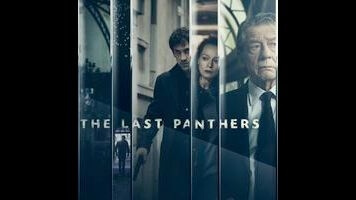The Last Panthers is the anti-heist

The Last Panthers opens with an intense jewel heist, as Milan (Goran Bogdan), one of the famous Panther jewel thieves, tries for one last score with a team he doesn’t quite trust. But the miniseries swiftly disabuses viewers of the notion this will be a caper: One of Milan’s team shoots a kid in his panicked escape, and the group becomes an international liability when lead detective Khalil (Tahar Rahim) starts tracking the abandoned handgun. The usual network of buyers is looking toward a future where international business shorthand, not jewelry, is priceless. And insurance investigator Naomi (Samantha Morton), desperate to track down the diamonds, starts to reopen some very old wounds.
The shift from decisive action to the quagmire of semi-legal business empires founded on crime soon scrapes any veneer of glamour right off those first few minutes. But that’s by design: This series lands halfway between a character study and that reminder that nobody’s mistakes go unnoticed. It’s a carefully controlled downward spiral that doesn’t always manage to reach the nuance it’s going for (is there a saintly little brother who must be kept from harm? You bet. In fact, more than one!). But writer Jack Thorne makes sure The Last Panthers takes its time—even though it’s often a step ahead of the viewer, who’s expected to piece together how one aspect of this quiet disaster is going to impact another. It’s most concerned with the crucial, often helpless moments before and after a turning point, how people change—or don’t—in the face of the world’s apathy, and how eventually, consequences gather enough momentum to tighten into a stranglehold. The diamonds are the least of anyone’s problems. This miniseries is the anti-heist.
It’s a very stylish decay, at least. Director Johan Renck manages to infuse the often-industrial settings of his clandestine meetings with the evocative, ominous flatness of a stage play. Characters stand on barren ground, fighting for their lives with a few brusque sentences back and forth, as the city skylines rise behind them like matte paintings. The juxtaposition between the characters’ increasing desperation and the increasing indifference of the camera builds beautifully. Police converge like ants on a housing estate as the frame watches dispassionately from above. Big moments cut out a beat or two too fast, which at first seems precipitous and eventually becomes almost meditative; if the characters don’t get what they want, neither do we. “Sometimes things are too rotten to change,” one character admits; this is the kind of story that bears it out, both in story and in form. It’s a balancing act. Without hitting Snyder levels of desaturation, there’s definitely a subdued palette. At one point the camera pans over a child’s birthday party, choked with balloons in garish candy colors, and the burst of pastels feels somehow invasive.
Some stories, under such narrative and visual weight, would tilt so self-serious as to risk melodrama. There are definitely moments in The Last Panthers that teeter on the edge—the sort of Greek-tragedy decisions and thematically relevant laments that are so hard to land in a series that aims to use grit to make everything stick. That the whole thing largely keeps from tipping over is a triumph of the cinema-caliber cast, as the actors’ reactions provide most of the emotional underpinning. The characters are all too calculating and repressed to admit anything in words, anyway. (The score, by electronic artist Clark, generally—and smartly—keeps out of the way of the proceedings, providing atmospheric dread without overwhelming the performances.) As the title might suggest, everyone’s a little bit doomed, and in a series that gives them little respite from that truth, the range of performances provides crucial texture to the proceedings.
Morton might at first seem a tough sell as someone so hard-boiled, but the taciturn, untouchable edifice she presents is leaking just enough poison at the edges that we look forward to watching her strike—the sort of character a six-hour miniseries was made for. John Hurt, always a delight, is also an object lesson in the ways the current television landscape tempts movie talent; he gets to take a break from being a fifth-billed, wryly informative elder statesman to get his hands dirty, with palpable relish. Tahar Rahim (outstanding in 2013’s The Past) ekes every last nuance out of what could be a predictable good-cop setup. And Goran Bogdan delivers a quietly star-making turn. He could just be the jewel-thief glue that binds the others together and provides a perspective on finance as the new colonialism; instead, Bogdan takes the position of tragic hero and grounds it in fully human frustrations. The supporting cast is vast—occasionally larger than the limits of viewer empathy—but this miniseries boasts a rock-solid central quartet who sell the series’ broader moments and who, at their best, can all effortlessly pin the camera’s attention. Their suffering matters, which is more than most of the world can say.
Unusually, most of The Last Panthers’ preliminary buzz has been because of its theme song, rather than anything the cast, or even the story, offers. But this is also the rare case where that particular focus might be understandable, given that the theme in question is David Bowie’s “Blackstar.” An opener like that, so unfortunately close on the heels of Bowie’s death, means that a title sequence has put an accidental burden of greatness on an entire miniseries. It would be impossible to deliver something as bleak, unsettling, and compelling as “Blackstar” has posthumously become, but more often than not, when it counts, The Last Panthers delivers.
Reviews by Brandon Nowalk will run weekly